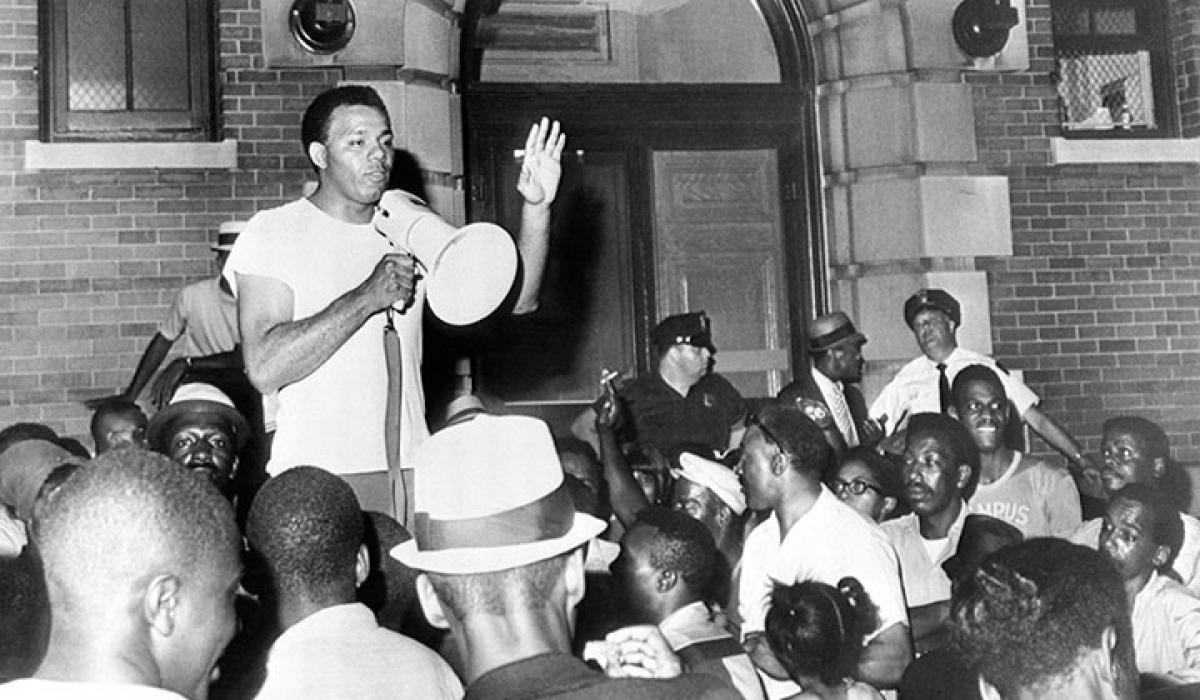Feb. 23, 1934 – Sept. 29, 2015
The work of Robert Curvin *75 spanned activism, academia, policy, and journalism. But the common element was the city of Newark, N.J., where Curvin was born and spent all of his adult life except for his four graduate years at Princeton.
Curvin grew up in the town of Belleville, next to Newark. His first real job was operating the elevator at the city’s Bamberger’s department store. He went to college at Rutgers-Newark, becoming a civil-rights activist and founding a chapter of the Congress of Racial Equality. And on a July night in 1967, he became caught up in the racial violence that would erupt in Newark, leaving 23 people dead.
That night, talk spread among community members that a black cab driver had been dragged into a police station, appearing to be dead. Curvin went to the precinct to find out what had happened, he relates in his 2014 book, Inside Newark: Decline, Rebellion, and the Search for Transformation. A police inspector showed him to the cell where the cab driver was awaiting an ambulance — conscious, though badly beaten. Curvin went outside and told the crowd of several hundred that the man was alive. He urged them not to respond with violence. But rocks began flying, followed by Molotov cocktails, and then the police charged. Curvin later would characterize the conflict as a rebellion, not a riot, saying the motivating force of at least some participants was to change how the government worked.
“There is such a thing as ‘Home is home.’ He was deeply invested. It was an essential part of his persona.”
Hugh Price, former president of the National Urban League
In the aftermath of the unrest, Curvin was disheartened, saying in 2006 that “the destruction of human life that I saw in those very short few days, I will never get over.” For the rest of his life he fought for civil rights and against poverty in urban communities.
“There is such a thing as ‘Home is home,’” says Hugh Price, former president of the National Urban League, who served on The New York Times editorial board with Curvin. “He was deeply invested. It was an essential part of his persona.” Curvin campaigned for Kenneth Gibson, who became Newark’s first black mayor in 1970.
A social worker, Curvin got his master’s degree and Ph.D. in politics at Princeton. He became head of the Ford Foundation’s Urban Poverty Program and a dean at The New School in Manhattan. He daily rubbed shoulders with people who were unfamiliar with the city he went home to each night. As he wrote, “I am the guy who gets the Newark questions at a party in New York or on a plane ride to Washington.”
He could have left Newark, recalls Curvin’s daughter Nicole. “But he wouldn’t budge. He thought that this was the place where he wanted to raise a family and feel connected and to continue to make a difference.”
While the city has attracted new businesses and development, it still is beset by poverty and what Curvin described as “the dysfunction of the schools, the pervasive violent crime, and the reality of joblessness for thousands of people, many of whom are young and who have no legitimate options for a safe and crime-free livelihood.” Politicians often made unfulfilled promises of renewal.
Yet despite the city’s problems, her husband never slid into bitterness, recalls Patricia Curvin. He believed that positive change was coming, albeit slowly. He had to “be brutally honest about what is going on and what isn’t going on,” she says. “About what one has to do to move the calendar forward.”
Katherine Hobson ’94 is a freelance writer in Brooklyn, N.Y.


